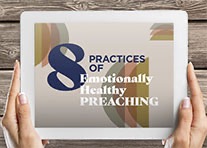The False Self
The false self is pretending, consciously or unconsciously, to be somebody you are not. Defensive and superficial, it severely limits our relationships and our effective witness for Christ. The following is a brief inventory to determine how much of a mask, or false self, you are wearing: I sometimes say “yes” when I really prefer to say “no.” I often need to be approved by others to feel good about myself. I often remain silent in order to avoid conflict. When I make mistakes, I feel like a failure. At times, I compromise my own values and principles to avoid looking weak or foolish. My self-image soars with complements and is crushed by criticism. I do for others, at times, what they can and should do for themselves. I am fearful and reluctant to take risks. I often go along with what others want rather than “rock the boat.” I compare myself a lot. Read more.





